Building bridges for health innovations in Baden-Württemberg
Press release of BioLAGO e.V. from July 22, 2024
D-Reutlingen/Konstanz | Companies in the fields of medical technology and diagnostics are under increasing pressure to comply with stricter EU regulations. One major challenge is the increasing demand for clinical sample material from medical facilities, as well as for implant materials removed from the body, so-called explants.
In order to improve the provision of these materials, the project partners, NMI Natural and Medical Sciences Institute at the University of Tübingen, and BioLAGO have joined forces in the “ProbenMaterialCenterBW” funding project. In a workshop at the NMI with company and hospital representatives, important hurdles and starting points for better cooperation between industry representatives and hospitals were identified and discussed.
At this deep-dive workshop as part of the “ProbenMaterialCenterBW” project, which is funded by the Baden-Württemberg Ministry of Economics, Labor and Tourism, around 20 interested parties came together in Reutlingen at the invitation of BioLAGO and the NMI to discuss possible solutions for better cooperation between hospitals and the healthcare industry.
Using an exciting case study presented by Dr. Natalie Garzorz-Stark, dermatologist and Managing Director of Dermagnostix GmbH in Freiburg, key aspects that are important for productive cooperation between hospital representatives and industry partners were highlighted. “As a young innovation company, the lack of access to suitable patient samples, which are essential for ensuring the safety and performance of our medical products, is a major hurdle for us. The workshop showed that the ProbenMaterialCenterBW funding project has the potential to help companies find suitable clinical partners so that existing products remain available and new products can be launched on the market,” explains Dr. Garzorz-Stark.
Valuable expertise from clinics, industry and patients presented
Dr. Dietmar Schaffarczyk, regulatory expert at ETH Zurich and Managing Director of the medical technology company stimOS GmbH, gave a presentation at the workshop outlining the requirements for a successful ethics application to ensure successful cooperation between the clinic and industry.
Prof. Andreas Nüssler then presented a personal experience report on how clinics and industry representatives can cooperate on an equal footing so that fair collaboration can succeed. “An important point in the provision of biological material for research and industry is that, for example, tissue preservation in clinics is an additional task and clinics are not just seen as 'tissue suppliers' but as equal partners. After all, the central task of a clinic is to care for its patients. As head of the Siegfried Weller Institute for Trauma Medical Research at the BG Klinik Tübingen, patient welfare is my top priority. When clinics and healthcare companies come together as partners and innovations are developed in the field of diagnostics and medical technology, this can create added value for doctors and patients,” says Prof. Nüssler.
The workshop also made it clear that the patient's declaration of consent for the further use of samples, known as broad consent, is an essential prerequisite for the provision of sample material and explants for the purposes of medical research and development. In addition, Mina Luetkens, founder of the patient advocacy group “Patients4Digital”, spoke about how early information can be used to convince patients to release personal biological material for use in the research and development of better healthcare products.
The event concluded with a presentation by Friederike Zängle from BIOPRO Baden-Württemberg GmbH, who introduced the “Klinische Studien-Lotsen BW”, a platform based on the MDR & IVDR emergency aid of the state of Baden-Württemberg, which is intended to facilitate access to clinical trial centers as a central information hub.
Focusing equally on forward-looking patient care and promoting innovation
“With the ProbenMaterialCenterBW, together with our partners from the NMI, we are building urgently needed bridges between medical care facilities and the manufacturing healthcare industry. In doing so, it is important for us to keep an eye on both the legal framework conditions and the fair cooperation of all players. The deep-dive workshop has given us new important impulses and insights that we will implement in the further implementation of our project,” explains Prof. Martin Elmlinger, Chairman of the Board of BioLAGO e.V. and moderator of the event, who is providing technical and content-related support for the project.
“The aim of our funding project is to make a sustainable contribution to strengthening the innovative power of healthcare companies in Baden-Württemberg. The wide-ranging discussions at the deep-dive workshop showed us that we need to include the differentiated needs of companies in the development of the ProbenMaterialCenterBW as well as the possibilities and limitations of everyday clinical practice. We are convinced that the exchange of sample material from the clinic to industry will benefit patients, as this is the only way to create new medical technology and diagnostic products for even better healthcare in the long term and ensure the best possible product safety,” concludes Dr. Hanna Hartmann, Head of Biomedicine & Material Sciences and Group Leader for Regenerative Biomaterials at the NMI.
Addressing the challenges of digitalization
Support through digitalization with the European Digital Innovation Hub (EDIH Südwest) is key to satisfying the diverse requirements of the various partners. Access to sample material should be as simple as possible and tie up as few additional resources as possible in the clinics, whose primary task is patient care. It is also important to avoid duplicate structures and to use existing structures. This is the only way to create acceptance for the ProbenMaterialCenterBW.
EDIH Südwest is the central point of contact in the southwest of Baden-Württemberg to support companies, start-ups and the public sector in responding dynamically to digital challenges and remaining competitive. EDIH Südwest is co-financed by the “Digital Europe” programme of the European Union (project number 101083741), the Ministry of Economic Affairs, Labour and Tourism together with the Ministry of the Interior, Digitalization and Communities of the State of Baden-Württemberg as well as other national funding.
About the “ProbenMaterialCenterBW” funding project
The consortium partners, the NMI Natural and Medical Sciences Institute at the University of Tübingen and the BioLAGO e.V. healthcare network, have launched the “ProbenMaterialCenterBW” funding project to ensure that innovative healthcare products continue to be developed in Baden-Württemberg and that vital medical products remain available on the market. Together, the two consortium partners want to establish an exchange platform to improve the availability of clinical samples and retrieved implants for the healthcare industry.
The project is funded by the Ministry of Economics, Labor and Tourism of the state of Baden-Württemberg.






